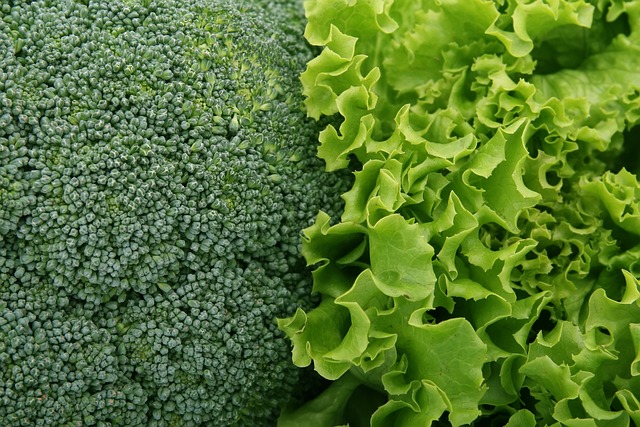In the world of leafy greens, lettuce stands as an undeniable champion. Renowned for its crisp texture, refreshing taste, and versatility, lettuce is not only a culinary delight but also a powerhouse of nutrients. From ancient Egypt to modern-day salads, this humble vegetable has traversed through time, evolving from a symbol of prosperity to an emblem of health. In this comprehensive exploration, we delve into the myriad health benefits of lettuce, unraveling its nutritional profile, and shedding light on its potential to enhance well-being.

A Leafy Marvel: Understanding Lettuce
Lettuce, scientifically classified under the genus Lactuca, belongs to the Asteraceae family, which includes other leafy vegetables like spinach and kale. This green gem is primarily cultivated for its succulent leaves, which come in various shapes, sizes, and colors, including green, red, and purple. With its high water content and low-calorie count, lettuce is a favorite among health enthusiasts and culinary enthusiasts alike.
Nutritional Breakdown: What Lies Beneath the Leafy Veil
Behind its tender leaves lies a treasure trove of essential nutrients that contribute to overall health and well-being. Lettuce serves as a rich source of vitamins, minerals, and phytonutrients, making it a valuable addition to any diet.: Now, let’s explore its nutritional composition more extensively:
Vitamins
Lettuce boasts abundant levels of vitamins A and K, each playing pivotal roles in supporting various aspects of health. Vitamin A contributes significantly to the maintenance of optimal vision, skin health, and immune function, whereas vitamin K is vital for both blood coagulation and maintaining strong bones.Additionally, lettuce contains moderate amounts of vitamin C, folate, and vitamin E, further bolstering its nutritional value.
Minerals
Calcium, potassium, and magnesium are among the key minerals found in lettuce. Calcium supports bone health, potassium aids in regulating blood pressure, and magnesium is involved in various physiological processes, including muscle function and energy metabolism.
Phytonutrients
The vibrant colors of lettuce leaves are attributed to phytonutrients such as chlorophyll, beta-carotene, and flavonoids. These compounds possess antioxidant properties, helping to neutralize harmful free radicals and reduce the risk of chronic diseases, including cancer and heart disease.
Water and Fiber
With its high water content and dietary fiber, lettuce promotes hydration and aids in digestion. Fiber adds bulk to stool, facilitating bowel movements and promoting gastrointestinal health.

Health Benefits Unveiled: The Power of Lettuce
Beyond its nutritional composition, lettuce offers an array of health benefits that span across various aspects of well-being. Let’s explore some of the remarkable ways in which this leafy green can positively impact health:
1.Supports Weight Management
As a low-calorie, nutrient-dense food, lettuce is a staple in weight loss and weight management diets. Its high water and fiber content promote satiety, helping to control hunger and reduce calorie intake.
2. Promotes Heart Health
The combination of potassium, fiber, and antioxidants in lettuce contributes to cardiovascular health. Potassium helps regulate blood pressure, while fiber aids in lowering cholesterol levels, reducing the risk of heart disease.
3. Enhances Digestive Health
Thanks to its fiber content, lettuce supports digestive health by promoting regular bowel movements and preventing constipation. Additionally, the water content of lettuce helps maintain hydration, which is essential for optimal digestion.
4. Boosts Immune Function
The vitamins and antioxidants present in lettuce play a vital role in supporting immune function and protecting against infections. Vitamin C, in particular, strengthens the immune system and aids in the body’s defense against pathogens.
5. Protects Eye Health
The high levels of vitamin A and beta-carotene in lettuce are beneficial for eye health. These nutrients help maintain vision and protect against age-related macular degeneration and other eye disorders.
6. Aids in Bone Health
Vitamin K, along with calcium and magnesium, contributes to bone health and density. Including lettuce in your diet can help strengthen bones and reduce the risk of osteoporosis and fractures.
7. Hydrates the Body
With its high water content, lettuce serves as a hydrating food that helps maintain fluid balance in the body. Proper hydration is essential for various physiological functions, including temperature regulation and nutrient transport.

8. Supports Skin Health
The vitamins and antioxidants found in lettuce contribute to healthy, radiant skin. These nutrients help protect against oxidative damage, reduce inflammation, and promote collagen production, resulting in improved skin tone and texture.
Conclusion
In conclusion, lettuce offers a plethora of health benefits, making it a valuable addition to any diet. Its low calorie and high nutrient content make it ideal for weight management and overall health. From providing essential vitamins and minerals to potentially reducing the risk of chronic diseases,lettuce proves to be a versatile and nutritious option. Incorporating this leafy green into meals can contribute to better health outcomes and overall well-being. So, whether enjoyed in salads, sandwiches, or wraps, lettuce stands as a flavorful and beneficial choice for enhancing both taste and health.













